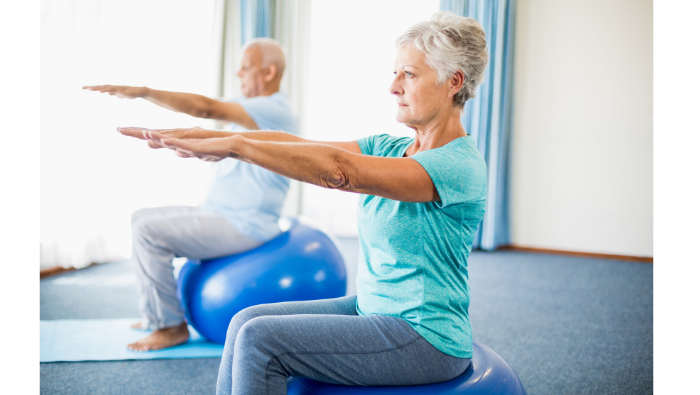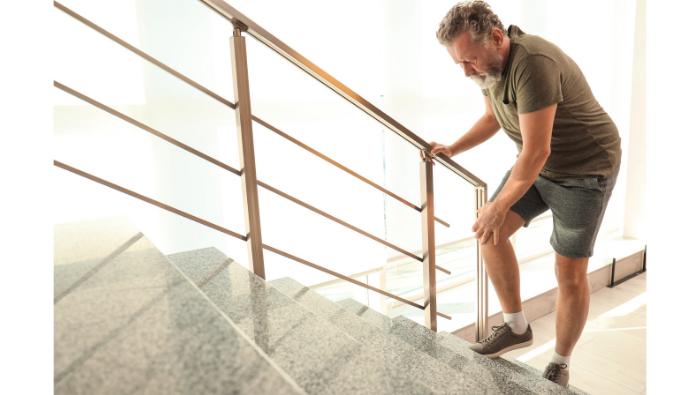Osteoarthritis is a condition which causes pain and swelling to joints in the body. It is very different from Rheumatoid arthritis which we will look at in the coming weeks. In the UK it is thought around 8 million people suffer from the condition. It is more common in women and in people who have had a family history of osteoarthritis however it can also be caused by a previous injury or other joint related conditions like gout.
Osteoarthritis starts by affecting the smooth lining of the joint called cartilage which is there to protect the joint. This means the movement within the joint becomes more difficult that usual which causes pain and stiffness. Once the cartilage is damaged and thinned out the tendons and ligaments which work the joint have to work much harder and can pull the joint unevenly. This causes swelling and the formation of little extra bits of bone called osteophytes. Eventually the space between the joint will narrow which means bone will rub on bone.
There is no cure for osteoarthritis but there are medications which can help reduce the swelling and thus the speed in which the joint deteriorates.
Top 10 home remedies for easing arthritis (and preventing it!)
Diet
Some research suggests that changing your diet can help control symptoms and the speed in which further joint destruction occurs. Try to eat a balanced and varied diet to get all the vitamins, minerals, antioxidants and other nutrients you need. It has been suggested that a more Mediterranean-style diet which includes fish, pulses, nuts, olive oil and plenty of fruit and vegetables can help ease the deterioration, much like eating more foods rich in omega-3 fatty acids, for example oily fish.
Exercise
Exercise will keep the joints supple and prevent pain, swimming is a particularly good form of exercise because you are supported within the water. Pace your activities through the day – don’t tackle all the physical jobs at once. Break the harder jobs up and do something more gentle in between. If weight is an issue; losing weight and reducing pressure on the joint can help slow down the process of destruction. If you aren’t sure what exercises are best for your osteoarthritis, speak with a movement specialists who can help with prescribing personalised regimes to manage the problem. This might be a chiropractor, Physiotherapist or injury therapists.

Footwear
Wear low-heeled shoes with soft, thick soles (trainers are ideal). Thicker soles will act as shock absorbers for your feet, knees, hips and back. High heels will alter the angle of your hips, knees and big toe joints and put extra strain on them. Ensure your footwear has a fastening. This enables your foot to function correctly and reduces the pressure on the joints. If you are suffering from osteoarthritis in the foot, protect the joints from rubbing on footwear with the vast array of protective shields available. If you are in doubt of which is best for you, contact us today to discuss which device is best for you.
Aids to help
Use a walking stick to reduce the weight and stress on a painful hip or knee. When climbing stairs make sure you utilise the handrail for support. This is particularly important if you have osteoarthritis of the knee. Think about modifying your home, car or workplace to reduce unnecessary strain on your joints. There are lots of different gadgets that will make your daily tasks easier.

Pain relief
If you are able to take them, painkillers such as paracetamol and non-steroidal ant-inflammatory drugs (NSAID’s) such as ibuprofen can be taken to help reduce the pain and swelling in the joint. Ibuprofen gel can be applied directly to the joint to reduce inflammation and pain. Applying warmth to a painful joint can symptoms and stiffness. This can be helpful if you have a flare-up of pain when you’ve done a bit too much.

Surgery
Surgery is often a necessary treatment option, albeit a last resort. If you think you may benefit from surgery speak with your GP who can refer you to a podiatric surgeon (foot related osteoarthritis) or an orthopaedic specialist (rest of body osteoarthritis).
If you have osteoarthritis, don’t suffer in silence, speak with someone today and try the above checklist to help manage your condition.
All the best


